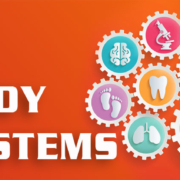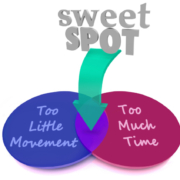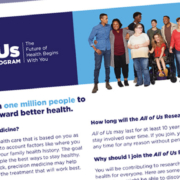Something Greater than Yourself
Who’s going to analyze all of this data when data collection is complete? A better question might be who couldn’t analyze this data. The answer: anyone who has a good research question and agrees to abide by the guidelines of data usage can run an analysis. That could even be you. That’s correct; if you have a question and the ability to analyze the data, you could do it.
The goal is personalized medicine, and not just a pitch by a practice that’s talking about typical healthcare. The goal is to be able to identify the subgroups that will respond best to preventive health practices or to specific disease treatments. In that way, a profile of the best techniques based on genetics, environment, and lifestyle can be developed.
The only disappointment I have is that they didn’t include the microbiome. That would require a stool sample and add a greater degree of complexity to a data collection procedure that’s already very complicated. Maybe they’ll add that in the future.
If you go to the All of Us website, you’ll be able to find the local healthcare system in your area that’s responsible for data collection. In Grand Rapids, it’s Spectrum Health. I did the surveys online and scheduled an appointment for the physical data collection; that was it. In our area, we get a $25 gift card to a large grocery store chain, so I’m planning to get the whole family involved; Riley’s off the hook because you must be 18 and able to give consent. Whether you’re healthy or not doesn’t play a part in it; in fact, the info from people with current health conditions may be even more important.
The Bottom Line
The opportunity to become a part of something significant doesn’t happen all the time and almost never in preventive healthcare. This is time to do something greater than yourself, I can’t tell you whether it will benefit you personally, but it will benefit humanity. Maybe, just maybe, it will benefit a friend or relative. Check it out and check in to All of Us.
What are you prepared to do today?
Dr. Chet
Reference: https://allofus.nih.gov/

 AllOfUsPeople
AllOfUsPeople



 AllOfUsInfo
AllOfUsInfo
 AllOfUsInfo
AllOfUsInfo BurgerOnTheFourth
BurgerOnTheFourth